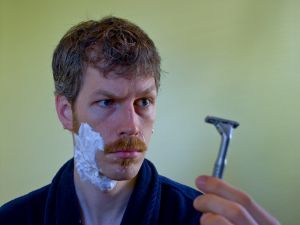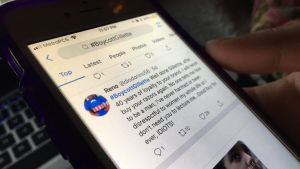
Gillette has been a household name for generations and has always been “the best a man can get” when it comes to grooming products. However, in wake of a new, experimental advertising campaign, many feel the company has insulted their biggest customer demographic.
The minute-long commercial encourages men to call out other men for behaviors such as violence, bullying and sexual harassment, emphasizing how “the boys watching today will be the men of tomorrow.” The slogan for the new campaign is “the best men can be,” a play on words for their classic slogan “the best a man can get.” Despite the ad’s attempt at promoting positivity, many customers have taken to social media to express their distaste for the campaign.
“Gillette has stated that this is not a one-time commercial, but that they really want to change their approach so that your experience of their product will also signal different that they traditional image of masculinity. I think that if they are consistent in this messaging, and that the ad is not just a temporary was of capitalization on the national conversation, then I have less problem with it,” Paul Wright says. “I think it was part of a marketing strategy for Gillette that was designed to sell razors at a time when men are buying fewer razors. But that doesn’t mean that you have to view what they’re doing as cynical. It is about the profit, but it also a way for the company to signal that it wants to be on the right side of history on these issues.”

Paul Wright is the assistant provost for international affairs at Cabrini University. He is also currently the professor of the gender & body studies course “Difficult Men: Masculinity and Media” which tackles the theme of toxic masculinity.
“I think its revealing that people are boycotting Gillette just for presenting an ad that simply says ‘be nice’ and ‘be supportive of people who are otherwise oppressed.’ The fact people are mad about it says a lot about their own anxieties surrounding masculinity,” Wright said.
In wake of larger scandals such as the Nike and Colin Kapernick collaboration, the debate whether advertising should be politicized is nothing new. Aside from those who are outraged by the message itself, an entire other category of outrage is by those angered by the fact the ad made a statement on the issue at all, regardless of whether they agreed with the message or not.



